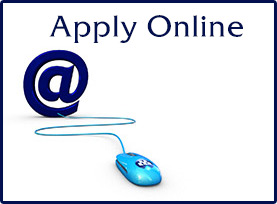
Waleed Jawaid (Pakistan): "I started my bachelor's in business administration at Wittenborg in 2013, and since then I have been a part of the Wittenborg family and I have loved the experience of being part of this prestigious institution. One of the best things about the university is that, here, everyone knows everyone, and I always have the feeling of being at home when I am at the campus. Being an international student in the Netherlands has allowed me to gain new skills, like cultural awareness and self-awareness. By working in project weeks, I have gained knowledge of problem-solving and team leadership. I believe I am a better person than I was before, and by studying at Wittenborg I can be a valuable member of society."
Introduction
This exciting MSc, Master of Business Management, specialised in Digital Marketing & Communication challenges students to study at a high academic standard, combining case studies and research. However, the degree programme also has a practical approach in its design - through project weeks, professional enquiry and a module of professional-based learning in which students complete a short work placement often linked directly to their final project.
The programme offers a combination master of business administration subjects and broader modules in economics and management. Through modules looking at global economics and strategic management, globalisation, society & culture, the programme will enable students to further develop their deeper knowledge of business management and administration.
The specialisation in Digital Marketing & Communication specifically looks at the impact of the fast changing, ‘connected’ world of internet use, smart phones, apps and social media. Many companies and organisations have completely changed their approaches to advertising, and adapted their marketing strategies - not only to these new ways of communicating with customers and stakeholders, but also the actual method and perception of marketing & communication in a digital age.
Internet & the many and various types of social media have created an unprecedented way in which people connect - businesses to customers, business to business, and people who would not normally meet are linking up to do business, apply for jobs, sell and purchase. This environment provides business students enormous potential for learning and developing themselves within the realm of Digital Marketing & Communication. This specialisation brings together up-to-date marketing communication, understanding digital media, and the implementation of big data analytics.
Course Content
Semester 1
(Core Modules)
- Marketing Management
- Globalisation, Society & Culture
- Research Methods Introduction (Final Project)
- The World Economy
- Professional Inquiry
(Specialisation Modules)
- The Future of Integrated Digital Marketing: Video, Mobile, & Artificial Intelligence
- New Media, Marketing & Analytics
Semester 2
(Core Modules)
- Research Methods (Final Project)
- Micro Economics - Global Perspectives
- Strategic Management
- Project Module (3 Project Weeks, linked to Final Project)
(Specialisation Modules)
- Business Intelligence & Data Mining
- Strategic Communication & Branding
Semester 3 (Work Placement & Graduation)
- Professional-Based Learning
- Final Project
Course Structure
The master's programme is delivered in a block format, with 2 modules being covered every 6 weeks. Core module classes are inter-disciplinary - you study shared modules with master's students from different business management specialisations. Due to the rolling entry (6 times a year), groups are dynamic, extremely international and diverse.
The modules are delivered intensively over consecutive days in the 'block format', which means that each module has 6 days of teaching split into two blocks of 3 days. Teaching methods include group work, case studies, presentations, and live projects. The course is delivered through a variety of approaches including lectures, presentations, tutorials and case studies, with an emphasis on interactive learning. Each module is taught by two lecturers, often a full-time Wittenborg lecturer and a guest lecturer from a partner university. Modules include regular guest speakers from industry.
The Industry
Business Administrators with knowledge of Digital Marketing & Communication have become essential to the daily operations of companies and other organisations. Even in non-profit and government organisations the clients and outside stakeholders have become ‘customers’. Internally communication has become indistinguishable from external, with company news letters and info-bulletins being used in the same way and through the same mediums to inform.
Companies today are in a constant development stage when it comes to their marketing strategies. Whereas in the past, traditional marketing strategies could last for many years, the effect of digitalisation and internet innovation means that companies are constantly having to update their Digital Marketing & Communication strategies. For instance, decisions on using Facebook, generically or with advertising, Instagram and LinkedIn. Deciding to implement a WhatApp campaign, or using Wechat instead. Organisations are dealing with issues such as maintaining 24/7 chatbots on websites and creating ads that are personalised towards internet users.
Managing large budgets consumed by GoogleAds and Adwords are an issue at all marketing departments and trying to understand the data, react to the data and use the cockpit-like tool set to manage online advertising effectively.
Companies are learning to manage big-data, deciding when to and when not to outsource digital marketing operations, cope with GDPR and look at the benefits and drawbacks of Digital Marketing & Communication.
Career Prospects
In this age of digitalisation and internet-driven lifestyles, the business community has come to recognise that success depends upon a solid and maintainable Digital Marketing & Communication strategy. Companies need people that understand new media, big-data strategies and the combination of online marketing and communication with the precise measurement of results that enable strategic actions to be taken.
Graduating from a highly international institute such as Wittenborg University of Applied Sciences, that places high emphasis on a combination of academic research and company and professional exposure, means that the career prospects of graduates from the Master of Business Management specialised in Digital Marketing & Communication are multiple and global.
Often Wittenborg graduates aspire to continue their studies, with a DBA or a PhD research degree; however, many students move directly into business, sometimes as a result of their work placement, and their final project which is often company based.
Examples of companies where alumni work range from leading global companies in marketing & communication departments, consultancy and big-data management to more local, specialised companies, NGOs or government agencies in the Netherlands or elsewhere in Western Europe.
Entry Requirements
The admission requirements (criteria) for the Master Business Management programmes (all specialisations) are as follows:
- a bachelor's degree or equivalent recognised qualification.
- Applicants are requested to provide an academic reference from their previous education institute.
- It is necessary to have obtained a bachelor's degree from the domains of business, management, economics or trade. In their bachelor's degree applicants must have completed an academic piece of work (final project or dissertation) that demonstrates a degree of academic writing and research experience.
- No professional experience is required for these master's programmes.
English Language Requirements
IELTS 6.5 or TOEFL equivalent. Click here for an overview of the equivalent scores.
TOEFL Code of Wittenborg is 4889.
The English language proficiency level requirement is ½ a point higher than the minimum national requirements in the Netherlands.
Selection procedure
There is no specific selection criteria for students wishing to enter the master's programmes at Wittenborg; however, all students are interviewed and must demonstrate motivation. Students will be advised of their suitability prior to signing an initial study agreement as a pre-requisite to obtaining admission (offer letter).
Non-EU students requiring sponsored visa for study.
Non-EU (visa) students are “screened” according to their background, in order for the institute to be able to guarantee their immigration status.
The screening comprises an interview, collection and correlation of all IND required documents, including proof of sufficient funds, taking into account any scholarships provided by Wittenborg (Orange Tulip Scholarship, for instance) or by third parties (NUFFIC, EU, etc).
Details on Scholarships at Wittenborg can be found at http://www.wittenborg.eu/wittenborg-financial-assistance.htm.
Applicants are required to provide a motivation letter in which they describe the reasons for choosing Wittenborg’s programme, as well as the reason for wanting to study in the Netherlands (international students). Student motivation is important as the programmes are demanding and especially for international students there is a criteria that they complete at least 50% of all their credits in a year.
Apply / Information Request
Fill in the Information Request Form to get more information about our programmes and admissions process. You can also send an email to admission@wittenborg.eu, and one of our team members will reply to you as soon as possible.
Please note that our office is open Monday to Friday from 08:30 to 17:00 Dutch time.
If you wish to directly start your application, please start your application here.


